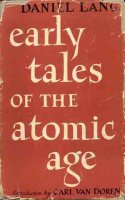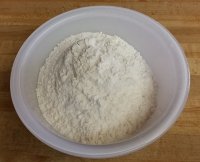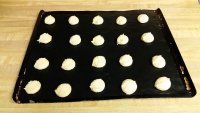It's far too early to have figured out all the ins and outs of the recent Ohio State killings, but two lessons seem clear to me.
I wish we would not be so quick to label such acts as terrorism. The officials may be cautious, but that doesn't stop the public from making its own hasty judgements. We don't want to dilute the term, and I for one am tired of every act of violence toward more than one or two people being called terrorism. Maybe this was, but my own feeling is that terrorism has to have a broader purpose, such as an ideology or at least a campaign to gain power and intimidate a group of people through fear. Murder/suicide, mental illness, anger, and hatred have been around a long time, and calling them terrorism gives the actions a certain respect that could lead still more deranged people to express their feelings through dramatic forms of murder/suicide.
However he might have cloaked his actions, this attacker sounds more like a lone wolf with personal problems. Calling him a terrorist, no matter how much he may have played into the hands of certain terrorist organizations, is according him a dignity he does not deserve.
Empowering is better than cowering. This article from the Columbus Dispatch explains why Ohio State broadcast the message "Run Hide Fight" to their students during the attack. (Emphasis mine.)
“Run Hide Fight” has become this generation's “Stop Drop and Roll.” It stems from a public-awareness campaign used by the Department of Homeland Security. ... The message is meant to get people to go through a series of steps to ensure survival: Run if they can, hide in a secure place if they can't and, as last resort, fight for their lives.
Dr. Steve Albrecht, an expert on threat assessment in the workplace and schools, said the “Run Hide Fight” protocol has been an effective tool in helping people react in mass-violence situations.
“What I teach in my program is these (attackers) aren’t Navy Seals, they are dumb or mentally ill guys with guns who can be stopped,” said Albrecht, a former San Diego police officer who is now based in Colorado. “You have to give people the mindset that we can fight back, and that we have to wait around for someone to shoot people is wrong. And that’s why the 'Run Hide Fight' approach has worked and fighting back has helped save the day in many of these situations.”
That's pretty much the advice we were given when our homeowner's association had a program on what to do during an "active shooter" situation—which, by the way, the speaker pointed out is a misnomer that we should stop using. A rifle range is full of harmless active shooters, and the killer at Ohio State managed to do a lot of harm without firing a shot. "Active killer," or "active attacker" would be more accurate, though I don't expect the media to change their language anytime soon.
Our speaker had some other good advice, such as:
- When you walk into a room, note where the exits are. Active attackers may actually be rare, but that's good advice for many situations, including fires and having to take your toddler to the bathroom.
- Recognize that guns and knives are not the only weapons available. Chairs, tables, umbrellas, and other items in the room could save your life.
- Know the difference between cover and concealment (both make you more difficult to find, but only cover will stop a bullet).
- Run if you can, and keep running as far as you can. Don't stop just because you have gotten out of the room/building. Many dangerous things will stil be happening. And try to remember to run with your hands up, because the police don't immediately know who the dangerous people are.
- Remember that you won't necessarily know who the police are. In such situations, the police are called in from all over, and may not be in uniform.
- If you are a concealed carrier and have heroically saved the day by shooting the assailant, drop your gun, put your hands up, and step away from the scene. Remember that the police will enter the room intent on stopping a man with a gun in his hand....
It's high time we stopped teaching our children that they are helpless. We don't want them to be so confident they take unnecessary risks, but if we don't give them knowledge and skills and teach them to be courageous in the face of danger—even evil—we're lost.
Fact-checking sensational headlines is more important than ever, and I just discovered how hard that can be.
It started when my daughter posted a link to this petition requesting the government of France to lift its ban on showing this heart-warming video about children with Down Syndrome on French television.
From the petition page:
The State Council in France just affirmed a ruling that bans the video on the grounds that it is “inappropriate.” They argue that allowing people with Down syndrome to smile is “likely to disturb the conscience of women who had lawfully made different personal life choices.”
Essentially, France is telling people with Down syndrome that they do not have a right to show their happiness in the public sphere. This decision is discriminatory, and it violates the rights of individuals with Down syndrome.
That's certainly weird enough to require fact-checking. With the Internet, that should be easy, right?
Snopes made no mention of it whatsoever. Ditto for truthorfiction.com. Google News, however, was replete with articles. The trouble was that most of them were from sources that I knew many of my readers would reject, unread, without a second thought. And then there were the headlines:
France bans video because children with Down syndrome are "inappropriate"
France to ban people with Down syndrome from smiling
French TV Bans Smiling Down Syndrome Children--Might ‘Disturb’ Post-Abortive Women
French court bans TV ad showing happy kids with Down syndrome
Don't they just scream "clickbait" and the kind of story that must be misleading if not actually false? But my daughter had posted the link ... and she almost never does anything like that, certainly not unless she's sure of her sources.
I'm not surprised that the first sources I found were from right-wing publications—plus the Catholic Church, which is often left-wing, but not when it comes to anything that touches abortion. But to find the truth, I felt I needed to consult a source that was, if not neutral, at least biased in the other direction.
Enter the Huffington Post. Not that I trust everything they print, not at all. But I trust their liberal bias, which was exactly what I needed. And here it is, in the words of a mother of three children, two of whom have Down syndrome. Here are some excerpts, but it's worth reading the whole article.
Last week another big step was taken towards the mass persecution of children with Down syndrome. On November 10th, the French ‘State Counsel’ rejected an appeal made by people with Down syndrome, their families and allies to lift the ban on broadcasting the award winning “Dear Future Mom” video on French television. The ban was previously imposed by the French Broadcasting Counsel. Kids who are unjustly described as a ‘risk’ before they are born, are now wrongfully portrayed as a ‘risk’ after birth too.
The video features a number of young people from around the globe telling about their lives. Their stories reflect today’s reality of living with Down syndrome and aims to reassure women who have received a prenatal diagnosis. Their message of hope takes away the fears and questions these women may have, often based on outdated stereotypes.
[O]ur kids, whom studies from the USA and the Netherlands have proven to be much happier than the cranky, sulky bunch who go through life without Down syndrome, are banned from public television because their happy faces make post-abortion women feel uncomfortable. Women must continue to believe in the myth that society and medical professionals portray; that Down syndrome is a life of suffering, a burden to their family and society.
What’s next? Will kids with Down syndrome be banned from school? Will they be segregated from society and placed in institutions like in the old days, because their presence upsets post-abortion parents? See this ban is akin to putting people with Down syndrome away because their presence ‘confronts’ society with the reality of their systematic eradication. Eradication not to ‘prevent suffering’, but because authorities have decided that their differences place a burden on our lives and society. ... Let’s show them the truth that families with Down syndrome have an enormous good quality of life. Let’s show a future of hope, unconditional love and yes, a lot of smiles and happiness.
While Lejeune Foundation takes the matter to the European Court for Human Rights the French press has remained quiet about it. A petition has started to ask the French government to intervene. Please sign, support and share happiness!
I am not much of a petition-signer, and I generally believe that what is shown on French television is none of my business. But I think I'm going to sign this one, because I believe this policy has crossed a line. Will they ban smiling "typical" children from TV because they might disturb anyone who has aborted a healthy child? If not, that is certainly discrimination based solely on handicapped status.
My heart grieves for anyone who has suffered the loss of a child, and I have known those times when the sight of happy children was painful. When our first grandchild died two days after his birth, just before the Christmas season, all those songs about a newborn baby boy were more than a little hard to take. But our own particular griefs are no excuse for taking away another's happiness, and if aborting Down syndrome babies is likely to cause such trauma and regret with regard to what might have been, maybe we should take another look at how we approach that decision.
But that's another issue. Regardless of one's position on when in the gestation process a life becomes fully human and deserving of our compassion and protection, regarding a handicapped person as subhuman puts us on the same level as the eugenicists of a hundred years ago, or the worst of the Nazis. I don't think France really wants to go there.
Any of my readers who know more about this story—particularly those of you who live or have lived in France—please chime in with what it looks like from the French point of view. I know there's almost always another side to a story.
It has been a hard week. It is hard not to fall into depression at the concentrated and violent hatred I have seen expressed. It's worse to see the deep divisions among my friends.
However, it has all been through the media, especially social media. What I have personally seen has been amazing in the other direction. In person, people are so much more polite than on social media!
For example, we just spent several days in New York City. New York is like Paris, apparently. Both have a reputation for being rude and unfriendly. But when we went to Paris a few years ago, we found that in 99.9% of our encounters people were friendly, patient, and helpful.
So it was with New York. We stayed in three hotels, and visited several different parts of the city. We saw strangers helping strangers, people reaching out to one another. We saw smiles, and heard friendly greetings everywhere. We overheard politically-charged, random conversations that were measured, reasonable, and willing to give others the benefit of the doubt. "Please," "thank you," and other forms of polite social interaction abounded, and—in marked contrast to social media—profanity and angry words were almost nil.
There is much more good out there than we think, and it's not limited to our own social circles and to those who agree with us.
I have been neglecting my Inspiration category. It's time to step back and take a deep breath. As with my previous post, this quote is from George MacDonald's Lilith A. It could be clearer, but as I haven't been able to find the equivalent in the version of the book that was eventually published, it will have to stand.
The general courses of nature were much the same with [the alien beings] as with us, else communication would not after all have been so satisfactory, for all intercourse is founded on sameness with the differences of sameness and not of difference.
— George MacDonald
Lilith A
Doesn't this nail what's wrong with discourse these days? We talk, but we don't communicate because we don't recognize the sameness between us. We see our disagreements as arising from differences so fundamental that we share no humanity to build upon.
Permalink | Read 2274 times | Comments (0)
Category Inspiration: [first] [previous] [next] [newest]
Cookies.
Back in 1992, a politician could cause a scandal by denigrating (whether intentionally or no) women who had chosen homemaking as their career: I suppose I could have stayed home and baked cookies and had teas, but what I decided to do was to fulfill my profession....
Be that as it may, my recent decision to spend a good deal of my free time baking cookies was not a political one. I just wanted to be able to bake a chewy cookie.
I love to bake, and have many cookie recipes that I pull out from time to time, but I wanted something different. Every once in a while I had tasted a chocolate chip cookie that was both soft and chewy, but not very often, and it was always from a commercial bakery. I wanted to be able to do it myself. I thought that would be simply a matter of searching online, where one can find a recipe for almost anything. And indeed, I found recipes that claimed to make chewy cookies, but they didn't turn out to be what I was looking for. So I pulled together the results of my research and started my Cookie Project.
I had one recipe in my collection, for ginger cookies, that came close to what I was looking for. That's where I started. I modified nearly every factor that could be changed, one after another, and in combination. I probably baked a couple thousand cookies. Fortunately, we didn't have to eat them all, finding plenty of willing volunteers to help out. Not that we didn't eat more than was strictly necessary ourselves. The great thing is that even the failures were delicious. I modified certain factors, such as the amount of baking soda, because I wanted a flatter cookie—but there was nothing wrong with the fluffier versions.
I am very, very happy with the results. The cookies are chewy exactly as I wanted them to be. Even the plain vanilla version tastes awesome. I've loved every variation I've made so far, and have many more ideas to try in the future. And making these cookies is super easy! I broke many of the baking rules that I grew up with: I melt the butter instead of creaming it (thanks, Heather!), I stir the dry ingredients together instead of sifting them, and I mix it all with a dough whisk instead of an electric mixer. I use a cookie scoop instead of two teaspoons to form the cookies, and instead of greasing my cookie sheets I line them with a Teflon sheet. I can whip up a batch of over 100 great-tasting cookies in less than an hour, most of which is cooking time, because with my oven I have to cook batches in series, not in parallel.
One thing I had to let go was healthfulness. I'm a big fan of making desserts more healthy: using whole wheat flour, cutting the amount of sugar, adding other grains and fruit. I make an oatmeal raisin cookie that tastes great and with a glass of milk provides a healthier breakfast than many cereals. But for this project my object was strictly to produce chewy cookies, so I did what I had to. After achieving the texture I wanted, I did try to reduce the sugar. The cookies still tasted plenty sweet—but the chewiness was gone. So there it is. Don't eat these cookies for your health. They're treats—eat responsibly.
What I gained most from this project, aside from wild success in the cookie department, was a better appreciation for what it takes to make progress on a project. You have to put in the time, you have to spend money on ingredients, you have to try and try and try again. You have to eat a lot of cookies. For my next project, I think I'll turn to bread....
- For a pdf version of the recipe, without pictures, click here.
- For a pdf version with the notes reduced in size so the whole thing fits on two pages, click here.
- For a one-page pdf version of the basic recipe, click here.
Chewy Cookies, Theme and Variations
The Theme (Chewy Vanilla Cookies)
2 eggs, beaten
1 tablespoon water
1 teaspoon vanilla extract
(for Variations, other flavorings to taste)
1 cup salted butter (2 U.S. sticks), melted
½ cup Karo light corn syrup
2 cups sugar
(for Variations, 1 – 2 cups add-ins)
3¾ cups all-purpose flour
1 teaspoon baking soda
½ teaspoon salt
In a large bowl, beat together the eggs, water, vanilla, melted butter, corn syrup, and sugar. (When making a Variation recipe, add other extracts and flavorings with the vanilla, and stir in the add-ins after the wet ingredients have been combined.)
Stir together the flour, baking soda, and salt. Add to wet ingredients and mix well. The dough will be sticky and quite moist.
Drop onto lined or ungreased cookie sheets, using about 2 teaspoons of dough per cookie. Bake at 325 degrees F for 7 to 9 minutes. Do not overbake. Allow cookies to sit for a few minutes out of the oven, then remove them to cooling racks. Store in air-tight containers when completely cool.
The cookies should be flat, textured, and amazingly chewy. They’re wonderful hot out of the oven, but even better the next day. For easy holiday cookies with a more festive look, sprinkle the unbaked cookies with sugar sprinkles of an appropriate color.
Notes
I like to save dishes by cracking the eggs directly into the bowl and beating them there before adding the other ingredients.
Because the butter is melted, this works quite well mixed by hand instead of with an electric mixer. I like to use a Danish dough whisk, adding the ingredients one or two at a time and mixing well after each addition. With an electric mixer, you might want to stir in any add-ins at the end, instead of with the wet ingredients.
If using unsalted butter, increase the salt to 1 teaspoon.
I melt the butter in the microwave, in a 2-cup glass measuring cup. I then can easily measure the corn syrup by adding it until the butter rises to the 1½ cup mark. This saves a dish, makes the syrup easier to pour out of the cup, and helps cool the butter. You don’t want the butter to be so hot it cooks the eggs.
The cookies look nicer if I line the pans with Swiss Teflon baking sheets. You could probably use parchment paper instead.
You can form the cookies the old-fashioned way, using two spoons, but I love my Oxo Good Grips cookie scoops for ease of use and consistency of cookie size I usually use the small (2 teaspoon) scoop, but the medium (1½ tablespoon) works well too; I just add a couple of minutes to the baking time. If I get the large (3 tablespoon) scoop that’s on my Christmas list, I’m going to make cookies big enough to use for homemade ice cream sandwiches….
When storing the cookies, I like to separate the layers—with parchment, plastic wrap, waxed paper, or whatever works for you. I find that coffee filters fit most of my containers perfectly. Otherwise, the cookies tend to stick together.
These cookies freeze very well. Sometimes I freeze them individually on a cookie sheet, then put them loosely in a plastic bag for storage. If you freeze them first, you don’t need to worry about them sticking together, and you can take out a few at a time, as you wish.
It also works great to make and freeze balls of dough for baking later. However, in our house, the frozen dough is likely to get eaten as-is before it has a chance to get into the oven.
The beauty of this recipe, besides that it produces delicious, chewy cookies, is its flexibility.
The Variations
Substitutions
Water The amount of water can be altered as needed, but the recipe is fairly forgiving and 1 tablespoon seems to work well despite variations in the amount of liquid extracts used.
Vanilla I use vanilla in every recipe, even when adding other flavorings or extracts.
Salted butter Unsalted butter works just as well if you increase to 1 teaspoon the salt added with the dry ingredients.
Karo corn syrup This is not the much-maligned high fructose corn syrup, which has had some of its glucose converted to fructose. Other brands of corn syrup may contain some HFCS, but not Karo. The light corn syrup has some added salt and vanilla, but not enough to worry about when you’re making substitutions. If you want the flavor and don’t mind the price, you can substitute honey or molasses (not blackstrap). I think corn syrup is hard to find in Switzerland, but there’s probably some version of glucose syrup or golden syrup that will do. I haven’t tried maple syrup yet, but I think it would be delicious.
Sugar Use white or brown sugar according to your taste. I use white sugar for the lightly-flavored cookies, and dark brown sugar for the rest.
Add-ins The sky’s the limit.
All-purpose flour In my baking, I often like to substitute white whole wheat flour for some or all of the all-purpose, but I haven’t yet experimented much with that for this recipe. First things first.
Variations on the Theme
Chewy Chocolate Chip Cookies Use brown sugar, with chocolate chips (large, small, dark, milk, whatever) as the add-in. Don’t skimp on quality when it comes to the chips! My favorites are Ghirardelli and Guittard.
Chewy Double Chocolate Chip Cookies Use the Chocolate Chip recipe but with 1/4 cup cocoa in place of an equal amount of the flour. I prefer Black Cocoa from King Arthur Flour.
Chewy Mint Chocolate Chip Cookies Use the Double Chocolate Chip recipe and add peppermint extract to taste.
Chewy Hazelnut Chocolate Chip Cookies Use the Double Chocolate recipe, adding hazelnut flavoring to taste. Think Nutella….
Chewy Mocha Chocolate Chip Cookies Use the Double Chocolate recipe, but replace the water with extra-strong coffee. (Or use espresso powder. I love this, but find it has a tendency to clump into a very solid rock after being opened.)
Chewy M&M Cookies Use either the Chocolate Chip or the Double Chocolate Chip recipe, but with M&M’s instead of the chips. I prefer the mini M&M’s. Our chldren's choir went wild over this.
Chewy Butter Crunch Chocolate Chip Cookies Use the Chocolate Chip recipe but make the add-in half chocolate chips (I prefer the minis for this one) and half Heath English Toffee Bits (or use leftover crumbs from making Almond Butter Crunch candy).
Chewy S’more Cookies Just like the Butter Crunch Chocolate Chip recipe, but use small marshmallows instead of the Toffee Bits. For larger cookies, cut-up mini marshmallows might give a better texture; for my small cookies, I used Kraft Marshmallow Bits.
Chewy Lemon and Honey Cookies Substitute honey for the corn syrup in the Vanilla recipe, and add lemon peel (fresh or dried) and/or Boyajian lemon oil (also available at King Arthur Flour) to taste, with the liquid ingredients. I like to add a little yellow food coloring, too.
Chewy Strawberry Lemon Cookies Add cut up dried strawberries to the Lemon and Honey recipe.
Chewy Almond Cherry Cookies Use the Vanilla recipe, adding almond extract to taste (I use at least 1 tablespoon), and dried cherries.
Chewy Cranberry Tangerine Cookies Use the Vanilla recipe, with dried cranberries as the add-in and tangerine (or orange) extract to taste. I used tangerine because I happen to have some tangerine extract, but when that’s gone I’ll use Boyajian orange oil.
Chewy Gum Drop Cookies Use the Vanilla recipe and add cut-up gum drops. I like to use the spice drops and cut them in thirds or quarters. This can get a bit sticky and tedious, but is worth it. This is a variation people seem to have strong feelings about, pro and con. For me, it was a successful attempt to recreate the best of a long-lost recipe my mother used to make on rare occasions. I absolutely loved to taste the dough, up until the point where she added coconut, at which time the cookie was ruined as far as I was concerned. You are welcome to use coconut as an add-in for your own cookies.
Chewy Gummy Worm Cookies Like the Gum Drop variation—but with a different flavor. Cutting up gummy worms is a lot easier than cutting up gum drops.
Chewy Speculaas Cookies Use the Vanilla recipe with brown sugar, and mix Speculaas Spice in with the dry ingredients. (When I can’t get it from Switzerland, I buy mine at King Arthur Flour.) If you believe speculaas cookies should always be crispy and in windmill shapes, think of these as Biscoff cookies. Using one tablespoon of the spice mix gives a strongly-flavored result that tastes more like traditional speculaas cookies; using less might more closely approximate the Biscoff flavor.
Below I have quoted 99% of a post I wrote eight years ago, following the election of Barack Obama. It was part of a series; all I've changed is the introduction and the one sentence that makes no sense outside of that context. When I reread it on the day after Election Day, I was struck by how applicable it still is, for ALL sides. (Note: not both sides. One of our greatest mistakes is thinking there is a single dividing line and each of us falls on one side or the other.) Change the names of the players as you will, the sense remains the same.
Note: This was written specifically for a Christian audience. Anyone else is more than welcome to come along for the ride, but be prepared for a lot of quotations from a source of which you do not recognize the authority. You may still find value in the meaning.
How We Can Sing the Lord's Song in a Strange Land
By the rivers of Babylon we sat and wept
when we remembered Zion.
There on the poplars
we hung our harps,
for there our captors asked us for songs,
our tormentors demanded songs of joy;
they said, "Sing us one of the songs of Zion!"
How can we sing the songs of the LORD
while in a foreign land?
Psalm 137:1-4
First of all, we pick ourselves up with as much dignity as we have remaining and give respect and support to our new leaders. "Fear God, honor the king" (I Peter 2:17) applies in a democracy, too. Humor has an important place in discourse, but mean-spirited mockery does not. I'm extremely uncomfortable with the abuse heaped on George W. Bush, just as I was when it was Bill Clinton on the receiving end, and I will accord Barack Obama the respect due the President of the United States, as well as that due a human being created in the image of God.
We pray for Barack Obama, and for all "who bear the authority of government." If the Apostle Paul could write, per I Timothy 2:1-2, "I urge, then, first of all, that requests, prayers, intercession and thanksgiving be made....for kings and all those in authority, that we may live peaceful and quiet lives in all godliness and holiness," while living under the Roman Emperor Nero, we can do the same living under an elected president who is not likely to include among his alternative energy polices the burning of living, human torches.
We attempt to live our lives in the best, most honest, most noble, and most loving way possible. Back to I Peter again (2:15-16): "[I]t is God's will that by doing good you should silence the ignorant talk of foolish men. Live as free men, but do not use your freedom as a cover-up for evil; live as servants of God." The Republicans would do well to remember that scandal and wrong-doing among office holders has done more than anything else to bring them down. Granted, it's not fair that the Democrats mostly get a pass for their equal or greater sins—although it's actually a compliment that better behavior is expected of Republicans—but the reality is that Republicans were hurt badly first by misbehavior and even more by not visiting swift and sure justice upon the miscreants. To live purely and act rightly, with justice and love and in quiet confidence, will win more hearts than the most reasoned argument.
Do not repay anyone evil for evil. Be careful to do what is right in the eyes of everybody. If it is possible, as far as it depends on you, live at peace with everyone.... Do not be overcome by evil, but overcome evil with good. (Romans 12:17-18, 21)
Do everything without complaining or arguing, so that you may become blameless and pure, children of God without fault in a crooked and depraved generation, in which you shine like stars in the universe. (Philippians 2:14-15)
[L]et your light shine before men, that they may see your good deeds and praise your Father in heaven. (Matthew 5:16).
We attend to the wisdom of the serpent as well as the harmlessness of the dove. Now is not the time to retreat from the political process, but to be all the more involved that we might be alert to dangers that threaten what we hold dear, and to how we might best meet those threats. History has proven that when we are caught unaware we react hastily, badly, and often ineffectively.
We don't flee to the hills, or to another country (as many threatened after losing the 2000 and 2004 elections), or withdraw from the system in sulky silence. It's not time, yet, for "those who are in Judea to flee to the mountains." If we feel like exiles in our own land, it is time to remember what God said to his people at the time of another exile: "Build houses and settle down; plant gardens and eat what they produce. Marry and have sons and daughters; find wives for your sons and give your daughters in marriage, so that they too may have sons and daughters. Increase in number there; do not decrease. Also, seek the peace and prosperity of the city to which I have carried you into exile. Pray to the LORD for it, because if it prospers, you too will prosper" (Jeremiah 29:5-7). We continue to live our lives wisely and without fear. The administration may have changed, but the basic rules of life have not. There's still the Big Ten—don't steal, don't murder, don't mess with someone else's spouse, and all the rest—and the sound-bite version provided by Jesus: "Love the Lord your God with all your heart and with all your soul and with all your mind, [and] love your neighbor as yourself."
Many of us are accustomed to feeling alienated from the general American culture; it may even be easier—or at least clearer—when there's no pretense that "our guys" are in charge. Whether it's financial responsibility, ethical behavior, or wise decision-making, in a democracy the citizens get no better from their government than the majority lives out in their lives. True progress, then, requires that we balance a deliberate counter-cultural structuring of our own lives, families, and communities with a creative engagement of the larger culture. That is how we sing the Lord's song in a foreign land.
A friend of a friend of a friend on Facebook posted an interesting and perceptive analysis of the election based on Maslow's hierarchy of needs. It's a public post, so you should be able to see it here. It may be somewhat simplistic for explaining a complex phenomenon, but I believe he has hit upon an important truth, the same truth that Christian missionaries found when they tried to address spiritual issues before basic material needs.
I've made my own, definitely simplistic, summary of the idea into a graphic.
- I'll be blunt: The term "President Trump" sticks in my throat. I wouldn't have been any happier if Hillary Clinton had won, but at least "President Clinton" has a familiar ring to it.
- Porter sure was wrong when he said Trump would be "The Biggest Loser" because he wouldn't win a single electoral vote. But he was also right: Trump is the biggest loser because he won. The Presidency ages people like nothing else, and he doesn't have very far to go.
- I truly believe the one person most surprised by the outcome of this election is Donald Trump himself. I believe he began the process just to see how far he could go, and never dreamed this would actually happen. In that, if nothing else, the whole country agrees with him.
- I have disliked Donald Trump ever since I once made the mistake of watching 15 minutes of The Apprentice. I longed that the Republicans, somewhere, anywhere along the way, would stand up and tell him, "You're FIRED!" But he is our President-elect, and as such deserves honor and respect. As a human being, he deserves courtesy, and he certainly needs our prayers. I strove, and I hope I mostly succeeded, in granting this to President Obama, and to President Bush before him, even though both of them disturbed me greatly. I intend to do the same for President Trump. If we cannot be civil to one another, it won't be Trump who brings America down.
- I've heard several people announce, bitterly, "He's NOT MY president!" Everyone needs grace in difficult moments, so I'm not holding that against them. But it does sound a bit like a teenager shouting in an argument, "You're not my mother!" A frustrated person has the right to feel that way, but it doesn't change the facts. Mr. Trump IS scheduled to be our president in a few months. True, it's possible to leave and renounce your citizenship, but be forewarned: that process is expensive.
- I predict the next four years will be neither as bad as some people think, nor as good as some people hope. I would have said the same thing if Hillary Clinton had won the election. Much depends on the people he surrounds himself with, and more importantly, on the American people—all of us.
- I've said over and over again that Donald Trump is the Democratic Party's best friend. It doesn't seem that way now, but I'm not taking back my words. The Republic Party is in disarray. The next four years could pave the way for a strong Democratic victory in 2020. Or not. We don't know. But in any case, Donald Trump is in the same position Richard Nixon and Bill Clinton were in their times: being able to take actions and make compromises that would not be acceptable to "his side" if they were proposed by the "other side." (If a Democrat had tried to normalize relations with China, do you think the Republicans would have stood for it?)
- Here's another prediction: Some Trump supporters are in for a rude awakening on some of the issues where they think he is in their corner. I don't trust any politician when it comes to political promises; the track record of them all is too abysmal. Besides, political realities are about give and take, gaining less than you hope for, hoping to lose less than you fear. Barack Obama was not the messiah many people thought he was, and Donald Trump is going to disappoint his followers as well.
- He also may surprise his opponents. As Obama was eight years ago, he stands in a position to be able to surround himself with good people, knowledgeable people who will not be afraid to work with him and challenge him as needed. To recognize and acknowledge that he does not have a "mandate from the American People," but that half the country is bitterly disappointed today. Donald Trump won only because a goodly number of people were so opposed to Hillary Clinton that they either opted out of the two-party system altogether, or voted for him only with great reluctance. That is not a mandate. It is a plea for grace, reconciliation, and healing. Sadly, I believe President Obama failed to recognize this eight years ago. We have another chance. Please, Mr. Trump, don't blow it.
- Donald Trump may not be a lawyer, he may not have experience in government, but anyone who says he has no experience with politics doesn't understand what it means to run a business.
- I read somewhere, weeks ago, that Trump had much more minority support than anyone knew, but it would only become known under the secrecy of the ballot box. That may be true. Florida was expected to go for Clinton because of the Hispanic vote, but while Hispanic voters are credited with Marco Rubio's win, they did not deliver for Clinton.
- One thing this election revealed is that the Democratic Party has once again shifted its population base. I'm old enough to remember when to be from the South was to be a Democrat. Under today's mapping system, the southern states would have been colored solid blue. Within my lifetime that changed radically, to where Democratic appeal is in the West, the Northeast, and big cities almost everywhere. More recently, I remember when the Democrats considered themselves the party of the working class, of the little guy against the rich businessmen. I suspect that many still think they are, which is why they lost this election. Working class people came out in droves yesterday to make it clear that their party has left them.
- For every major election, people joke about dead people voting. It may be debatable whether or how much that happens these days, though it certainly has happened in the past that votes have been cast in the name of those who have died. What I will say is that Early Voting has made it almost certainly a reality in ways that don't have to involve corruption. With an electorate of our size, the odds are almost certain that people have died between the time they cast an early vote and Election Day itself.
- I didn't see it coming, but next year we will enter the dreaded House-Senate-Executive one-party control situation. I'm less afraid of that than I thought I would be, because the Republicans are so far from united with each other, much less with Trump. I have no doubt that the Democrats will be able to find Republicans willing to cross party lines as needed, which actually give me more hope for bipartisan cooperation overall.
- On Election Night, Google popped up a notification on my phone suggesting I follow the election results. That turned out to be great: the results were well presented and easy to follow, and best of all, there was no commentary.
- I went to bed as usual, on the grounds that depriving myself of sleep was not going to have any effect on the election results. But Porter was following the process with NBC, so the TV was on when I got up at 2 a.m. to use the bathroom. I didn't get back to sleep till four. It was at that point that the commentators were coming to grips with the idea that Hillary Clinton might lose, and that was too interesting to miss. I was surprised and impressed by the discussion. With the exception of one of them, who showed genuine fear and went off on an apocalyptic rant, the commentators exhibited humility, respect, and for the most part a willingness, despite their obvious concerns, to give a possible Trump presidency, and the half of America who elected him, a chance. We were wrong. We didn't see this coming. We messed up. Maybe we're too wrapped up in our own, isolated world. They didn't call anyone names, and they seemed genuinely interested in understanding the real issues. I found that genuinely encouraging.
- Trump's speech, too, was encouraging. Knowing how bombastic he can be, I was nervous. But he did well, and so did Clinton, in both her concession speech and the one she gave to her supporters the next day. This is professional behavior. This is civilized behavior. If this civility, after so much of the opposite on both sides, can spread to the rest of us, there's hope for America.
- Finally—and I consider this to be the most important of my ramblings in this post—parents, please reconsider how you share your political feelings with your children. I'm not talking about teenagers, who are not far away from voting age. But by involving your young children in your politics, you are putting burdens on them that they are not ready to handle. I've heard post-election stories of children sobbing uncontrollably when they heard the results, and stories of children wearing Trump hats to school and teasing their classmates cruelly with their gloating. This is what happens when normal childhood behavior meets adult problems. We can, we must do better than that for our children. We do not need to let them see our own anger, griefs, prejudices, and fears. It is enough—it is essential—to teach them to be caring and compassionate, strong and brave, knowledgeable and wise.
Post-Finally, here's a shameless plug. I don't gain anything other than the good will of the author for saying this, but King Ron of the Triceratops, by S. S. Paulson, is a brand-new book that's a story about dinosaurs for children, a cautionary tale for grownups, and a good way to begin discussions about politics and other realities, independent of any particular political leanings. If you think it's about your party—or the other guy's—read the disclaimer. Read the disclaimer anyway. It's funny.
- Someday I suppose I'll give in and sign up for an absentee ballot, just in case I happen to be out of town on Election Day. But "the Tuesday next after the first Monday in the month of November" is right there in the Constitution, and I much prefer to vote on Election Day itself. I took advantage of Early Voting the first year it was available, and it felt so wrong I've never done it since. Besides, I like the camaraderie of voting at our local polling place. I can walk there. I see neighbors there. It makes me feel part of a community.
- You'll never know who I'm voting for tomorrow. You may guess all you want, but you are as likely to be wrong as right. I've been a Democrat all my voting life, but was always just as likely to vote for some other party. I've voted for people from parties you've never heard of—and parties I don't remember. (Hmm. Isn't it a bad sign if you don't remember the party after it's over?) I don't understand voting for a party at all; I belong to one so I can vote in the primary. In any case, I'm a huge believer in the secret ballot. It helps keep the powerful from threatening the weak, and friends from disowning each other on Facebook. Besides, at the moment even I don't know how I'm going to vote.
- Right now I'm almost wishing I'd voted absentee. Back then I felt freer. I was certain the election would be a romp for Clinton. I agreed with Porter, who insisted that Trump would be the Biggest Loser since McGovern. Thus I thought we had the luxury of voting our consciences—making a statement, telling both parties that we're not going to dance to their music if they keep coming up with tunes that make a toddler crashing pans together sound like Mozart. But now it appears that our votes might actually count, which means we have to be more responsible. The trouble is, that which appears to be the responsible decision changes daily, even hourly.
- To my shame, I realized that what I'd rather do is vote selfishly. That is, I want to be able to say, It's not my fault; I didn't vote for him/her.
- Here's a fun little quiz to see how the various candidates align with what's important to you. I'm not sure I believe it entirely, but it is much more nuanced than most such surveys.
- Porter came up with an interesting thought experiment: Suppose there were only four candidates: Clinton, Trump, Johnson, and Stein. Suppose further that the only vote that counts is yours. Whomever you pick will be the next President of the United States. For whom would you vote?
- Much to our surprise, we both picked Jill Stein, with whom each of us disagrees on almost every issue—on the grounds that she would be in a position to do the least harm. Not that her ideas aren't dangerous, but she'd be less likely to be able to implement them. Does that mean I'm voting for her? Your guess is as good as mine.
- I think what scares me most about Clinton is not so much her ideas, but that she's likely to be able to put them into action. If I knew for certain that after this election the Republicans would have control of both the House and the Senate, I'd probably vote for her. Likewise, if I knew both houses would be Democratic, I'd probably vote for Trump. Unlike many of my friends, I do not mourn when the "obstructionists" make the president work hard to implement his ideas; I believe that's their job. When all the branches of the government agree too easily, mistakes are more likely to be made. One thing going for Trump is that so many people—especially politicians—hate him that even a Republican-controlled Congress would tend to rein him in.
- This election is déjà vu all over again, only on a much larger scale. In the 2010 gubernatorial race, Florida voters had to choose between (1) a female, career politician with whom many of us had serious problems (and, I kid you not, who cheated during a debate), and (2) a brash, male, businessman who was a surprise candidate, spent vast quantities of his own money in his campaign, was involved in a business scandal, and was pretty much universally disliked by the political establishment. That was another election in which I made up my mind at the last moment.
- Which is worse, a loose cannon randomly shooting at friend and enemy, which might even explode and sink the ship, or a powerful cannon aimed unerringly at the city in which our children and grandchildren live?
- For the first time, I'm tempted to do a write-in vote. I've thought of writing in my true choice: Noneofthe Above. More seriously, I've thought of Ben Carson, who at least shows strength of character, integrity, and the ability to think well in highly stressful situations. But that feels like an abdication of my responsibility, since it is barely more significant that not voting at all.
- Speaking of Ben Carson: When he was running, where were all the people who told me I was racist if I didn't support Barack Obama?
- I feel as if we're caught in some twisted variation of the Prisoner's Dilemma, in which following the optimal strategy leads to sub-optimal results.
- Fortunately, there is very little correlation between a person's moral rectitude and his ability to do a good job as president. That makes no sense to me, but in my own voting life I've seen good people (Carter, Bush #2) do a terrible job as president, and questionable folk (Reagan, Clinton) do a commendable job. For this reason, I don't worry all that much about the outcome of tomorrow's election. I'm much more concerned about the increasing divisions in our society, stoked by the mainstream media, social media, and self-interested fearmongers everywhere. But that's another post.
- Most of all, as a Christian, I know that bad times will come, and good times will come, and neither our responsibilities nor God's care are dependent on the results of tomorrow's election.
- My most consistent prayer, with regard to our political situation, has been that we will get our leaders according to what we need, rather than according to what we deserve.
- Whatever happens tomorrow, how we treat our neighbors will always be much more important than who wins the election.
 Early Tales of the Atomic Age by Daniel Lang (Doubleday, 1948)
Early Tales of the Atomic Age by Daniel Lang (Doubleday, 1948)
My father was employed by General Electric his entire career, but much of his work was actually done for the federal government. As a child, I was never very curious about what he did when he "went to work," which was a good thing, since he usually couldn't talk about it. Much later, I picked up glimpses, as when we were visiting the Franklin Institute Museum in Philadelphia, and he casually pointed to a (formerly) top-secret military jet in the Aviation exhibit, saying "I helped build that plane." And when he revealed that the maps and information that "The Customer" had provided for my sixth-grade project on Ethiopia actually came from the CIA.
In his early years, he worked on the Manhattan Project, hence the number of books in his library (now mine) on Hiroshima and what was called the Atomic Age. This one is fascinating on several levels.
First, and this is of no little importance, Daniel Lang writes very well. I no longer take that for granted. He could make any subject sound interesting.
Second, it provides perspective on our own time. Here is a well-known, respected, seasoned writer for the New Yorker magazine, in an age generally considered much more concerned with civility and politeness than our own, casually using phrases like "the Japs" to refer to our then-enemy, "girls" when talking about female employees, and "the lady of the house has no servant problem, because Spanish maids from Santa Fe and Indian maids from the pueblos in the Pojuaque Valley are both available and efficient," when speaking about life in Los Alamos.
Most of all, the subject itself is fascinating. The world stood at the very beginning of a new era, and no one was quite sure what to do with the genie we had let out of the bottle. What surprised me the most was the naïveté, driven by fear, with which otherwise highly intelligent and experienced people, not to mention the general public, embraced the idea of putting one, internationally-controlled organization in complete charge of everything pertaining to nuclear materials, from mining and storage to what research might be done and who would be permitted to do it to who would control any bombs that were made. The United Nations had just been born, in much hope, and people had an almost worshipful attitude toward scientists, who had done this wonderful and terrible deed. An elite collection of right-thinking people could and should rule the world!
The broad fear ... was that by recommending an international monopoly they might be helping to create a Frankensteinian bureaucracy which, once it got going, would threaten this nation's civil liberties as well as its economic system. "But the stakes ... were too high for those men not to overcome the fear eventually. They knew that we would have to pay a price for security."
Although during this time the United States was the only country with nuclear technology, no one expected the monopoly to continue for long. The hope was that international control would keep the world's stock of nuclear weapons down to one or two for research purposes, too few for any country to start anything other than a conventional war. They could never have imagined that the Cold War would stay nuclear-free not because there were too few atom bombs, but because there were too many!
What I liked best about Early Tales of the Atomic Age were the stories of the people at all levels of the Manhattan Project (called "Manhattan District," the Army's term, throughout the book), especially when they coincide with what little I remember of my father's business (mostly trips to exotic places like New Mexico), or with what I've read in Richard Feynman's books.
Herewith a few tidbits:
One of the special headaches for the C.I.C. [Counter-Intelligence Corps] was handling the top scientists. Most of the people the Army was trying to keep quiet didn't actually know what the District wanted to produce. The scientists, however, knew more about it than the Army did. An inadvertent tidbit from one of them to an enemy agent, or even to a patriotic gossip, about the state of our plutonium research or some new idea that had been figured out for our electromagnetic separation process might bolix the works. Nor could the Army afford to fire its civilian geniuses for talking loosely. The nuclear boys wanted very much to co-operate, but, owing to a set of apparently ineradicable habits and eccentricities, they failed valiantly on occasion. "Free interchange of information" had been a lifelong practice with them. They were itching to discuss their work.
Also, they didn't take care of themselves, which disturbed the Army, since it was vital that the scientists stay alive at least until the first bomb was dropped. "Some of the world's lousiest auto drivesrs developed the bomb," a lieutenant told me. He added that they didn't walk so well either. ... Dr. Bohr was quite a jaywalker.... They used to say down in General Groves' office, in Washington, that they could always tell when he was coming to call by the sound of screeching brakes. Bohr was a problem from the beginning. When the British smuggled him out of Sweden in the bomb bay of a Liberator, they had to fly very high on the way to England to avoid being intercepted by the Luftwaffe. The crew put on oxygen masks and tried to put one on Bohr, too. The scientist's head, however, proved to be so massive that it wouldn't go on. The plane landed with its precious passenger out cold.
Why he couldn't have held the mask up to his face, since he didn't need his hands to fly the plane, the author does not explain.
A single shelf holds the library [of the newly-formed Federation of American Scientists], which consists of three books—the "Congressional Directory," "American Men of Science," and a copy of the Smyth Report.
The Smyth Report, a.k.a. Atomic Energy for Military Purposes, is also in my father's library and on my list of books to read. What is notable about the above quote is that Lang apparently thought it needed no explanation to his reading public. Similarly, although he clarifies place names like Los Alamos and Oak Ridge in detail, when he mentions Schenectady, he doesn't even add "New York," as if the home of the General Electric Company should be familiar to every American citizen. (It is to me, but I grew up there.)
U-235 becomes so radioactive if more than a certain amount of it—the critical size—accumulates in one pile that it can kill people in the vicinity and that it also soon becomes useless. Yet there was a time when only a few men working on the project, at Los Alamos and the University of Chicago, knew what that critical size was. Meanwhile, Oak Ridge was producing and storing the stuff. A Los Alamos scientist, visiting Oak Ridge on some unrelated errand, inadvertently discovered that the whole installation was heading for trouble. Possibly violating Army rules, he let his colleagues in on the secret.
That story is told, from the other side, in Surely You're Joking, Mr. Feynman! (Writing in 1985, Feynman still refers to women as "girls.")
These scientists had worked for the Manhattan District on various phases of nuclear research, and the Army, temporarily abandoning its policy of "compartmentalization of information," had recently brought them together to pool their knowledge in an effort to determine whether control of atomic energy could be achieved solely by inspecting plants engaged in developing it.
At that time, this method of control was widely regarded as a likely way out. ... The consultants had a variety of reasons for being skeptical about the effectiveness of plant inspection. To begin with, many of the steps involved in developing atomic energy for peaceful purposes are the same as those required to make atomic explosives. ... [A]lthough an international group of inspectors might systematically check on a nation's atomic plants, the possibility of quickly converting those plants to the production of bombs would remain. ... Inspectors working in countries in which they were strangers might easily be given the run-around. ... Moreover, some inspectors might not be particularly interested in doing a good job and might feel not the least insulted if they were offered bribes....
Oops. Tell me again about that treaty we negotiated with Iran?
I knew that at the end World War II the United States had acquired many high-level German scientists, but I hadn't realized that we also plundered a large collection of V-2 rockets. These were employed for many research projects, military and civilian, after the war. I'm certain that this was part of my father's work.
Besides the research, a program of educating personnel in the mechanics and principles of guided missiles is under way. ... The make-up of the student body is international. In addition to Americans, the class includes officers from Canada, Britain, Turkey, Chile, Denmark, France, India, Ecuador, Argentina, the Philippines, China, Mexico, Iran, and Guatemala—all countries, it would appear, that are at the moment considered to be among our likely allies.
Oops again. Emphasis on at the moment.
[Many fears, mostly irrational] manifested themselves during the spring of 1947, when there was nothing radioactive anywhere on the [Brookhaven National Laboratory] site [said director Philip Morse]. Then he corrected himself. "I beg your pardon. In May, one of our physicists did send away to the Kix Cereal Company for an Atom Bomb Ring. They give it to children who save Kix box tops. It has just enough radioactivity in it to keep making little sparks. Rather cute."
Note that both the director and the author were concerned about the public's irrational fears of atomic research, not that an American cereal company was sending a radioactive product to children.
Like most men of research, Dr. Green was reluctant to discuss the possible applications of the White Sands data. Military uses, as I expected, were absolutely secret.... Dr. Green did, however, speculate on one general possibility from which a number of other possibilities could flow. This was the idea of an orbital satellite—a missile that would revolve indefinitely around the earth.... At the height of a hundred miles, the G.E. expert remarked, the satellite would circle the world in one hour and thirty-three minutes. He felt reasonably sure that such a satellite could become a reality in perhaps ten years if this country cared to spend the great sums necessary for its manufacture and maintenance. ... Equipped with the right instruments ... a satellite of this sort would undoubtedly improve weather forecasting. ... A satellite ... could serve as a repeater, or relay, station for transmitting programs or messages. ... Dr. Green abruptly ended his speculations. "Pretty soon I'll start talking about trips to the moon," he said, "and you won't believe anything I tell you."

















